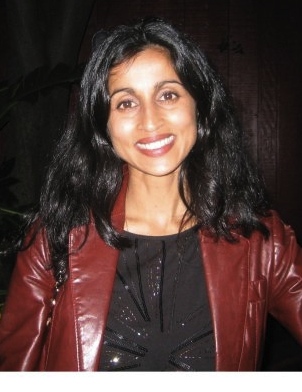 Leila Khan was born in Pakistan and has lived in various countries in Asia and Europe before settling in the US at the age of 11. A lawyer by training and profession, her writing has largely been academic, in the form of book reviews, law review comments, and chapters in books. A couple of years ago, she joined a writing group and started writing about her life experience of searching for belonging as a Pakistani, Muslim woman who spent most of her life in the West; this broader search for home and belonging was inextricably intertwined with the search for love and acceptance.
Leila Khan was born in Pakistan and has lived in various countries in Asia and Europe before settling in the US at the age of 11. A lawyer by training and profession, her writing has largely been academic, in the form of book reviews, law review comments, and chapters in books. A couple of years ago, she joined a writing group and started writing about her life experience of searching for belonging as a Pakistani, Muslim woman who spent most of her life in the West; this broader search for home and belonging was inextricably intertwined with the search for love and acceptance.
An excerpt from Leila’s story, “Rerouting”:
“I felt frantic as I thought about my sister’s “perfect” situation. She had met her fiancé at her local mosque’s youth group. He was Pakistani, a practicing Muslim, and fluent in Urdu. Check, check, and check. And he was an engineer. Yet another check. My Pakistani, Muslim, Urdu-speaking parents were thrilled. The only wrinkle was me, the unmarried older sister. My parents initially contemplated holding off on my sister’s wedding until someone could be found for me, but, given my track record of refusing suitors, they decided to move forward with her wedding.
“You know I’d like to go to the wedding with you,” he said. My stomach sank. My parents were devout, practicing Muslims. My entire extended family was. How could I show up with my Italian, Catholic boyfriend to a wedding full of Pakistanis and religious ritual? How would he react to the significant number of women who wore head scarves and the few who were covered in the chador? How would they respond to him? Luca’s appearance at this wedding would be uncomfortable for everyone.”
To read the rest of Leila’s story, order Love InshAllah today!
What drew you to this project?
When I heard about Love Insh’Allah, I realized that this search for love and acceptance confronts many of us, and a collection of stories would reveal how varied the journeys have been. I realized that sharing my experience and the boundaries I had crossed along the way, boundaries my culture and faith demarcated as those not to cross, would provide some insight on one way in which such transgressions can unfold. I am not cautioning anyone or advising anyone not to make the choices I did, I’m simply sharing my experience.
If you’re writing under a pen name, why?
A pen name felt most appropriate to preserve the privacy of my family, “Luca,” and my professional life.
If there’s one thing you hope that readers will take away from your story, what is it?
We can be wrong about the person we love, that things can fall apart very quickly, and, well, that’s part of the journey in search of love. It doesn’t mean we failed or that if we had tried harder it would have worked. It also doesn’t mean we should never take risks or love someone we were told we shouldn’t.
Anything else you want to share?
I’m very excited about being part of this anthology. I think the perceptions of Muslim women, including American Muslim women, as submissive, desexualized, and lacking autonomy are pervasive. I think our stories will show how wrong those perceptions are, and will illuminate both how we see ourselves and how we wish to be seen.











